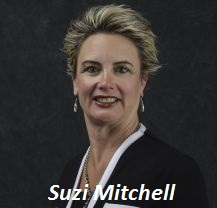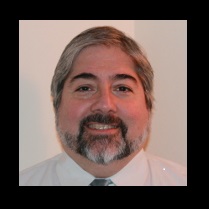In preparation for my presentation at the NYS Joint Career and Technical Educator conference in late June, I am struggling to express to my audience, in words, the gratitude that
our students had for CTE education in our CTE Medical Laboratory and Assisting Program. Over twenty years and 1000 graduates, we constantly revised the health care curriculum, committed ourselves to incorporate, at least, one activity or idea from every national and regional ACTE professional development meeting which we attended, and collaborated
diligently with our university and business partners which included: CUNY at the College of Staten Island and Hunter College, SUNY at Cobleskill and Rutgers University at Newark and
Bio-Rad Explorer Program (Biotechnology).
The program outcomes are phenomenal because we undertook the planning and development of our program according to the Career Pathway model first articulated for us by NYSED Commissioner Mills and CTE Director Jean Stevens in 1998. In 2002, our program was one of three CTE sequences from an NYC comprehensive schools which was featured in the
“Tools for Schools “series to roll out NYSED plans. Recently, Dr. Han Meeder (2016) has provided the blueprint for crafting a program of study (POS) that leads to a learning, growth
mindset and success in future careers, entitled: “ The Power and Promise of Pathways. How to Prepare All American Students for Career and Life Success. I can attest to the success
career pathways model because I met so many students after their college graduation and at their jobs who embodied the criteria for success that Hans described:”whatever the mix of
strategies employed, the end game is for students to internalize knowledge, and develop the creativity, problem-framing and problem-solving skills so the challenges of the real world” are
conquered and owned by the student. The career pathway model has instilled these qualities in every CTE graduate whom I met in recent years.
However, I realized that I described only half the formula for success of our students. I take inspiration from Dr. Randy Pausch’s “The Last Lecture” which I recently re-read to
encourage my son at his 8th-grade graduation this June. Randy’s lecture is about “Really Achieving Your Childhood Dreams”, and the influence of vital teachers/mentors who
revitalizes ,as noted by Joseph Campbell, and enables others to dream. CTE programs are not offering a parchment and evidence of approval by Trustees in the college-for-all stampede, but
cultivating mastery of skills and validation of childhood dreams of empowerment and career success. Education cannot be reformed only by pedagogical methods and behavioral
management techniques. CTE resonates and inspires students to conquer the real world constantly. Randy dreamed as a child to be an Imagineer for Disney; he did that through his
educational experiences and enabled by his mentors. Then he created a coding program, Alice, which will enable millions to follow and exceed his dreams. CTE teachers love what they
do and do that within an academic framework of career pathways by sparking a creative imagination from childhood dreams.
Because we were the same age, I am sure that Randy watched every Sunday night the Disney hour with Walt himself, and “dreamed upon a star”. I know Randy believed also, as I did, in
JFK’s career challenge . President Kennedy challenged us to go to the moon and do these things “not because they are easy, but because they are hard and the goal will serve to
organize and measure the best of our energies and skills” (JFK, 9/12/62) of our dreams. When you connect with students’ dreams through CTE, students are connected to education and
committed for life as a learners who master skills as opposed to accumulating degrees.
Let me tell you in my students own words. I choose the emails that the following students sent
to me because they contacted me several times over many years after graduation as they were reflecting upon their CTE experience.
Dateline: 3/22/07 from Michael S. who graduated from the CTE Medical Laboratory and Assisting Program in 2005“
Dear Dr. Marraccino:
I wanted to thank you for everything with the Med-Tech Program. Because of my
experiences in your class I was able to due better than almost everybody else in my Biology courses. I also have a job in a cancer research lab and I am presenting the research to the
northeast region meeting of BBB national biological honor society on Saturday. I just want to thank you for all of the insight into college biology. ( I even have a 3.92 major GPA. I hope the
program is still going well.”
Mike did well because he graduated from Monmouth University in 2009 and had several interviews to medical school. He was able as a Freshman to get into a laboratory and publish two papers as an undergraduate because he demonstrated, early in his undergraduate career, a mastery of basic microbiology and biotechnology techniques from the CTE laboratory in high school. Moreover, Mike nominated me for an award from the Roberts’ Foundation and Trustees of the University: Outstanding Secondary School Teacher who most influenced him
and helped in his career success.
Mike later wrote in 2009 in an e-mail: “ he (Dr. Marraccino) was able to engage his whole class
in active learning… I feel that I will never have made it this far without my good grades and research skills, which all stem back to Dr. Marraccino.’’ I will like to correct Mike this one time;
it all stem back to CTE career pathway.
Greg D. tells a different story in his three e-mails because he learned confidence to succeed.
Dateline: 8/30/2009:“hey doc, it Greg from last year. I wanted to say im. like a week and half into bio201 and chem201 and combined they cover every singled that we did in your class. i
wanted to say thanks because the syllabi contains so much familiar stuff……” Dateline: July 13/2013: “hello Dr. Marraccino, this is Greg…I saw you the other day in the hospital..after graduating…
went to sync new waltz for 4 years and majored in molecular bio and a minor in anthropology, took mcat 2 times went from pretty bad to pretty well and was accepted to NYIT college of
osteopathic medicine….”Dateline: 12/16/16:“…I graduate medical school in May….Thank you so much……Your program, it was one of the biggest factor of why I’m here today. I am very thankful for that
On the last of school in high school, Greg asked me if he could be a doctor because he never felt encouraged by his family to go down that career pathway. ”Could?” I said. You can be the
“little -train- that -could” – a book I often read in class to encourage my CTE students. Greg represents a “trajectory through projection” into a career that characterizes a learning growth
mind set.
Finally, Jill C. contacted me through “Linkedin” after graduating fourteen years ago from the CTE program and Jill represents to me the quintessential CTE student who is ever striving
and achieving. Jill’s published motto is: “ Learn it as many times as you need to” and she has and blossomed into her new career in nursing. Jill attained a four year biology degree but
focused on the clinical laboratory practices which we stress in the first half of our CTE sequence, worked in clinical laboratories and then went back to nursing school and as of 11:13
AM on 5/4/18: “ Hey Dr. M Passed my final;) officially graduating nursing school.” and she received an award of academic excellence for the highest GPA from Union County College,
Trinitas School. Wow! Jill demonstrated a fourteen year commitment to a learning growth mindset of “confidence through success.”
I believe that an educational model that enables students to attain a learning, growth mindset produces the most successful outcomes in academic achievement and career success. The
concept of a growth mindset is derived from the research of Dr. C. Dweck (2006). “ People who believe that their future is fixed, fail to change their future. Those of a growth mindset believe
that educational opportunities can change their trajectory into the future. “ This belief, growth mindset necessary for students to benefit from any educational experience, but a framework
of a CTE career pathway is also necessary and sufficient for students to achieve their goals, just ask: Mike, Jill, or Greg.








